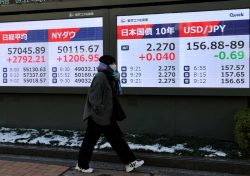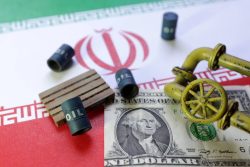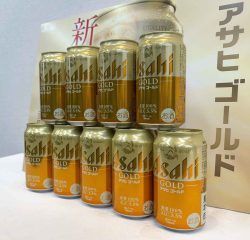
Japanese national flag is hoisted atop the headquarters of Bank of Japan in Tokyo, Japan September 20, 2023.
16:22 JST, March 19, 2024
SINGAPORE (Reuters) – Japanese shares ended higher on Tuesday, while the yen slid to 150 per dollar after the Bank of Japanas widely expected ended eight years of negative interest rates and ushered in the nation’s first policy tightening since 2007.
In a week filled with central bank meetings across the globe, the BOJ heralded a new era as it shifted away from years of ultra-easy monetary policy. It also abandoned yield curve control and dropped purchases of riskier assets, including exchange-traded funds.
“The BOJ took its first, tentative step towards policy normalization. The big question is what happens next,” Frederic Neumann, chief Asia economist at HSBC.
“Likely, the BOJ will find that it is getting ‘stuck at zero’, being unable to lift short-term interest rates meaningfully further in the coming quarters.”
Japan’s Nikkei was choppy initially after the decision but closed 0.66% higher, while Japanese government bond yields fell. In a statement announcing its decision, the BOJ said it will keep buying “broadly the same amount” of government bonds as before and ramp up purchases in case yields rise rapidly.
The yen JPY=EBSweakened 0.78% to 150.29 per dollar, indicating the landmark pivot had already been priced into markets after weeks of policy clues and media reports that a shift was imminent.
Analysts expect the yen, which is extremely sensitive to U.S. rates, to be more influenced by the Federal Reserve’s policy decisions as well as projections of the number of rate cuts this year by the U.S. central bank.
Investor focus is now on whether Tuesday’s BOJ hike is a one-and-done move or if there is more tightening to come as it may influence the yen’s role as a funding currency for carry trades.
BOJ Governor Kazuo Ueda said in his press conference that accommodative financial conditions will be maintained for the time being and the pace of further hikes will depend on the economic and inflation outlooks.
“The sell-off in the yen highlights how the funding properties of the yen persists,” said Aninda Mitra, head of Asia macro and investment strategy at BNY Mellon investment management. “But we would be more cautious about greater two-way risk and higher volume going forward.”
MSCI’s broadest index of Asia-Pacific shares outside Japan fell 0.84%. China stocks fell, with Hong Kong’s Hang Seng index .HSI down over 1%, while the blue-chip shares .CSI300fell 0.59%.
European bourses were looking at a lower open, with Eurostoxx 50 futures STXEc1 down 0.30%, German DAX futures FDXc1 down 0.29% and FTSE futures FFIc1 0.32% lower.
CENTRAL BANK BONANZA
Australia’s central bank held interest rates steady on Tuesday as expected, while watering down a tightening bias to just say that it was not ruling anything in or out on policy.
The Australian dollar AUD=D3 slipped 0.63% to $0.6519 following the decision. The Aussie is down over 4% against the U.S. dollar this year.
The Fed is widely expected to hold rates steady on Wednesday, with the market’s attention on policymakers’ updated economic and interest rate projections and comments from Chair Jerome Powell.
Last week’s stronger than expected inflation reports led traders to reduce their bets on rate cuts this year, with markets now pricing in 71 basis points (bps) of easing this year. At the start of the year, traders were pricing in 150 bps of cuts.
Traders are pricing in a 54.7% chance of the Fed starting its easing cycle in June, the CME FedWatch tool showed, sharply lower than earlier expectations.
Erik Weisman, chief economist and portfolio manager at MFS Investment Management, said a lot will be riding on the next inflation report due next month, where “another strong print would likely call into question Fed cuts this year, while a lower figure will probably put a June cut firmly back on the table.”
The yield on benchmark 10-year Treasury notes US10YT=RR eased to 4.324% in Asian hours, having risen to a three-week high of 4.348% on Monday. The elevated yields boosted the dollar, with its index =USD touching a two week high of 103.82.
In commodities, spot gold XAU= eased to $2,155.60 an ounce. U.S. crude CLc1 fell 0.18% to $82.57 per barrel and Brent LCOc1 was at $86.74, down 0.17% on the day.
Top Articles in News Services
-

Survey Shows False Election Info Perceived as True
-

Hong Kong Ex-Publisher Jimmy Lai’s Sentence Raises International Outcry as China Defends It
-

Japan’s Nikkei Stock Average Touches 58,000 as Yen, Jgbs Rally on Election Fallout (UPDATE 1)
-

Japan’s Nikkei Stock Average Falls as US-Iran Tensions Unsettle Investors (UPDATE 1)
-

Japan’s Nikkei Stock Average Rises on Tech Rally and Takaichi’s Spending Hopes (UPDATE 1)
JN ACCESS RANKING
-

Producer Behind Pop Group XG Arrested for Cocaine Possession
-

Japan PM Takaichi’s Cabinet Resigns en Masse
-

Man Infected with Measles Reportedly Dined at Restaurant in Tokyo Station
-

Israeli Ambassador to Japan Speaks about Japan’s Role in the Reconstruction of Gaza
-

Videos Plagiarized, Reposted with False Subtitles Claiming ‘Ryukyu Belongs to China’; Anti-China False Information Also Posted in Japan






















